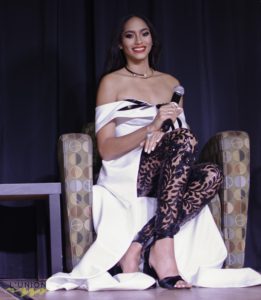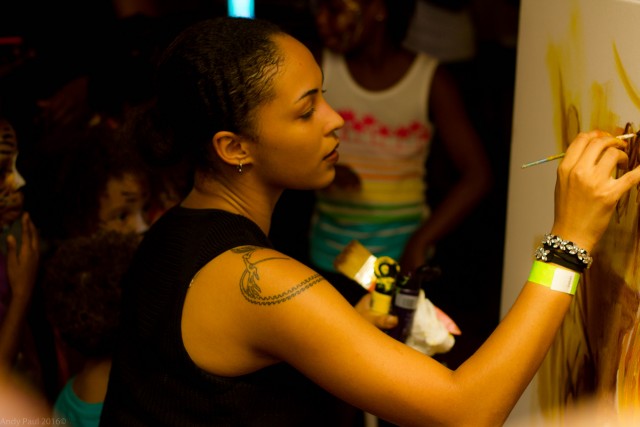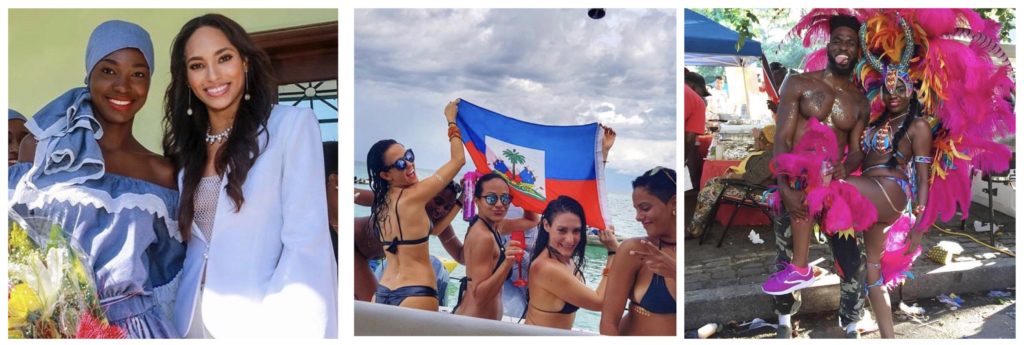“Pa jije san w pa konnen, aparans pa vle di anyen.” J.Perry. (Do not discriminate what you are ignorant of, looks mean nothing). In his song “Se pa sa”, the singer portrays a state of mind that’s apparent in all societies. Indeed, people across the globe are prone to labeling and boxing each other based off their pigmentation, religion, music taste etc.
So what creates this discrimination? What are its social and emotional roots? What are the most common prejudgments ravaging the Haitian society? How do they affect us? How do we get rid of them? Well, let us explore the core of their foundation and any possibilities of reinstatement.
In his book “Exploring Psychology”, David G. MYERS describes a prejudice as “an unjustifiable (and usually negative attitude toward a group and its members).” He also explains that it’s “a mixture of beliefs, emotions and predisposition to action.” To summarize M. MYERS’s words, we can deduct that a prejudice is the rejection and distaste of a group and its individuals.
Now to scrutinize some of its social and emotional roots, let us dissect it into different categories:
- Social inequalities: According to David G. MYERS, prejudice rationalizes inequalities. Indeed, in situations where some are well off and wealthy while others starve and can barely make it by, those in the upper echelon usually develop attitudes that justify things as they are. In the extreme case, slave owners perceived slaves as innately lazy, ignorant, and irresponsible – the very traits that “justified” enslaving them. More commonly, women have been regarded as unassertive but sensitive and therefore suited for the caretaking tasks they have traditionally performed (Hoffman & Hurst, 1990).
- Social divisions: As humans, we represent what specialists call a group-bound species. Indeed, our group means everything to us. We define ourselves in reference to it. Once we associate with a group, we contrast to the others and that is where the division begins. We draw a line between the others and us (the in-group). Such group identification pushes us to favor our own assemble and reject the others.
- Religious causes: “Religion can serve to combat prejudice, but it also promotes prejudice by promoting the ideas that certain people are the “chosen” people and others are not.” (View source at the end of the document)
- Threats and fear: “Threats to a person or group can also lead to prejudice. The threat may be either real or imagined. Threats involve fear not only of physical violence, but the loss of material wealth or financial wellbeing.” (View source at the end of the document)
Now that we have pointed out the most important aspects of prejudice, let us venture into the main subject at hand. As someone who was born and raised in Haiti, here is my list of our most common prejudices:
Artists are crazy and delinquents: “Mh. Ou konnen, li te komanse nan mizik donk depi lè sa fòk yo te wè tèt li komanse pati”. (Well you know, ever since he started showing interest in music, they should have known something was off.) Years ago, I heard these words sprung out of an elderly’s mouth. He was speaking about his godson and his passion for music. The boy got into a fight and his parents thought his pursuit for singing triggered the reaction. Some Haitians often think artists are delusional. Most of our compatriots view them as drunks, drug addict.

Light-skinned people are superior: Haitians usually bare a dark pigmentation but still in our society reigns a prejudice of color. Many of our people think that the brighter your skin tone, the more valuable you are as a person, which is why I think nowadays we are noticing many women and men bleach their skin in hopes of appearing to look caucasian, “blan”.
Raquel Pélissier made our country proud as first-runner up in the last Miss Universe competition; an accomplishment that to some, would be impossible if she were not light-skinned. I have seen comments on Social Media in which people claimed that the only reason Raquel made it this far was because of her hue. They disregarded all her hard work and dedication and pinned her success to her lighter shade.
Only people from the ghetto listen to rabòday: “Pitit mwen p’ap janm nan tande rabòday, paske se moun lari ki tande bagay sa yo e li p’ap janm nan kontre ak moun sa yo. (My kids may never listen to ‘rabòday’ (local music) since only those from the ghettos enjoy that type of music and they will never run into people of this kind). This is what a very religious woman told me while I was expressing my love for this genre of music. From the way she looked at me, I could see that she felt sorry for my soul.
People with tattoos, multiples piercings and or dreads are delinquents: I think that this one goes beyond explaining for it is one of the most popular Haitian prejudice.
People who only speak Creole are uneducated: I have heard a lot of people complain about how they were ignored at a public office because they introduced themselves in Creole. Our mother tongue is in a situation of diglossia with French and because of it, we judge those who use it very often. It is our mother tongue but still we reject people who embrace it.
Women who are open about their sex life are whores: Sex is still a reserved subject in our society and the ones who “dare” talk about it are considered as sinners.
Although the prejudices I have mentioned are very common in our community, I must admit that with our generation, they tend to disappear. For example, a lot of Haitian millennials have multiple piercings, tattoos and dreads. It is safe to say that we do not really discriminate against each other.
I once posted a Facebook status in which I pointed out the preceding “fact” and someone dragged me for it. He commented that such behavior was not part of our culture and that we should get rid of them. I disagreed but I understood where he was coming from. Indeed, we are unphased by quite a few “old standards” because of being exposed to a more open world. This phenomenon is called psychological acculturation and it has a lot to do with how our generation views life. Things that to our parents seem unacceptable are normal to us.
Having a negative opinion towards a group of people causes us to draw a line between them and us. We automatically put them in boxes, refusing to see what they are really about. Because of prejudices, some people cannot get a job, are denied access to some events, are talked down to etc. I have stumbled across a story in which an ill woman refused a doctor’s consultation due to his tattoos. She was sick but to her, it was not as painful as having to rely on a tattooed man’s help. This woman could have succumbed to her disease, and for what? A prejudice!
Finally, let us move to our remaining point: how do we get rid of those bigotries?
“A prejudice often becomes a habit after having it for a time. Once formed, prejudices can have great persistence. The person comes to believe his opinion is well thought out, regardless of the amount of objective information provided to suggest otherwise. Prejudices become locked in a person’s thought processes. Changing or eliminating these attitudes is difficult, and in many cases impossible, even when the person is presented with new information about the targeted group.”
Based on the statement above, I think it is safe to say that our parent’s generation is never letting go of some of their prejudices. It is too late for them; they got accustomed to a perception that will never change. If hope has long vanished for them, it still flourishes within us, the upcoming generations. The first step to eliminating our prejudices is accepting that there is more to a person than their looks. We should understand that every action someone takes is based off a whole life adventure we are unaware of! We judge the tattooed folks without realizing that there is a narrative behind those symbols.

Have you ever heard of Yaël Talleyrand? She is one of the greatest painters of our generation. She is a very respectful and talented woman who has a lizard tattooed on each shoulder. Instinctively, I am sure once people see them they are like “Poukisa l fè makak sa sou kò l la? Li gate po l” (Why would she degrade her body with such absurdities? She will damage her skin) or “Gade jan tifi sa sanble yon dejwe” (She looks like a real delinquent).
What they do not know is that these lizards have an emotional meaning to Yaël. Each one represents her parents. From a family of artists, Yael grew up in an environment where the symbol “Le mabouya” (the lizard) was important; that is the name of her parents’ foundation, the studio she grew up in. Therefore, when she moved away from her parents, she decided to get the brand that reminded her of them the most. “I tattooed two of the lizards, each representing one of my parents, to kind of know that I always have them beside me.” When we just assume that people get tattoos to show off and ruin their body, we eliminate the possibility that these designs actually hold a deeper meaning to that person.
So many more examples are present in our everyday life and it all comes down to this, aesthetics, looks hold no real value, and it is weightless. Changing them will require a self-acceptance which our society still has a long way to process as well as the will to overcome all these negative point of views.

Sally Riché is a young Haitian blogger, poet, linguist, psychologist and English teacher. Born and raised in Haiti, she writes articles in which she addresses some issues in the Haitian society.
To do so, Sally uses her own experiences and those of people in her surroundings. Living in Haiti, her findings are based off testimonies given by people sharing her situation. Ms. Riché wants to do qualitative research therefore she won’t be using numbers as data for her analyses.






























